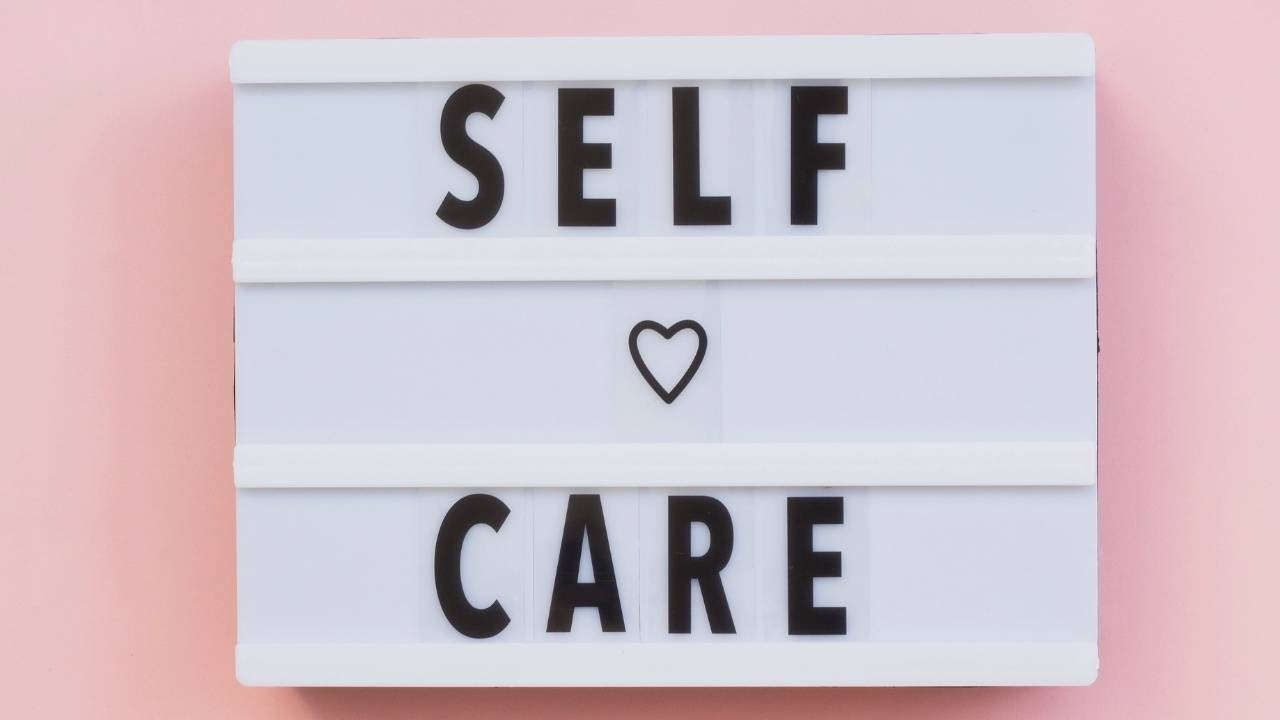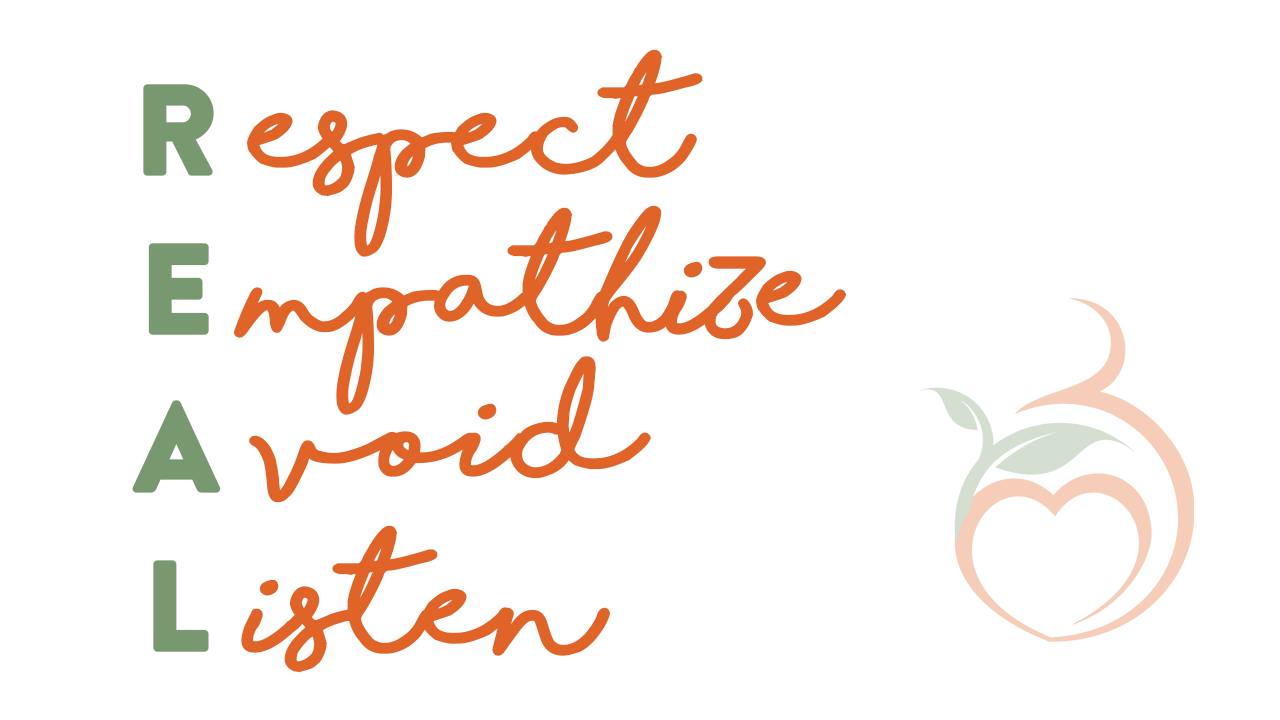Organic
Conceptions
Blog
Your (Realistic) Guide to Self-Care

Every day, we’re expected to take care of others. At work, at home, in our friend groups – we listen, we support each other, we go out of our way to help. And most of the time, it’s nice. People want to take care of the people they care about.
But that can take its toll.
And let’s be honest, taking time to nourish and care for yourself when life gets hectic is rarely modeled or supported. As a result, engaging in self-care can often sit at the end of your to-do list, rather than being made a priority.
To start, you have to understand what self-care truly is.
Self-care refers to the ability to refill and refuel yourself in healthy ways, including behaviors that foster physical and emotional well-being and that lessen the amount of stress and anxiety you experience in your everyday life.
The term self-care refers not only to engaging in various practices, but also being caring toward yourself. It can look different for everyone. For some, it’s taking a relaxing bath. For others, it’s d...
A 5-Step Guide to Ultimate Manifestation

"The energy we put out in the world is the energy we get back.” -Oprah
Manifestation is bringing something into your life through the belief that it can be yours. It’s bringing everything you want to experience into reality using your beliefs, thoughts, feelings, and actions.
There has been a lot of skepticism about the validity of the power of manifestation, however, there is no denying it’s gained momentum in the world of social media and amongst spiritual leaders and celebrities such as Oprah, Gabby Bernstein, and Ekhart Tolle. I am a firm believer and avid user of the law of attraction.
“I am a firm believer and avid user of the law of attraction.”
Naturally, given my field of study and expertise in mindset and fertility, I have written examples for manifesting motherhood. However, these 5 steps can be applied to any desired outcome.
Regardless of your past or present circumstances, it’s important to remember that you’re talking about your future self during thi...
Self-Care Equals Better Patient Care

Self-Care Equals Better Patient Care
A Fertility Nurse Gets Real About Steps To Be Your Best Self at Work
By Tara Brandner, DNP, FNP-C
In the world of fertility medicine, nurses confront a lot of emotionally difficult situations. When a regular part of the job is telling people they’ve had a miscarriage, a treatment wasn’t successful, or they have a condition that causes infertility, it’s taxing for even the most seasoned professionals. It can even make people want to leave the profession they love.
That’s why self-care is so important. People working in healthcare often need to go the extra mile with self-care to build their emotional endurance. That’s why I have several rituals that are part of daily life for me. I’m fairly strict about sticking to these practices because I’ve realized how critical it is for patient care. When people are experiencing their worst days, I need to be bringing my best self to give them the care they deserve.
Ritual #1: Protect your time
Protection ...
How to Deliver Hard News to Your Patients.

How to Deliver Hard News to Your Patients.
When the time comes to deliver hard news to patients, it’s never easy. Telling someone that their IVF didn’t work or they’ve lost a pregnancy, takes a lot out of everyone involved. The patient and the caregiver walk away with emotional distress—even those who have tried to develop a “thick skin.”
Caregivers get into healthcare to help people. When that doesn’t happen, it can be emotionally painful. It’s also common to have genuine sadness in response to your patient’s situation. We’re all human beings here, and there’s no magic button to turn off how you feel. But, in some ways, these strong emotions can work to our advantage.
How can emotional turmoil help? It means that you are empathetic and that you care deeply about the people you treat. Did you know that in the midst of delivering bad news, you can help a patient simply through your presence as an empathetic provider*?
Connection makes difficult situations easier.
When delivering diff...
Advice for Future Dads: 5 Tips to Support Your Journey

When we talk about fertility issues and the emotional challenges, we often neglect to discuss men and what they are experiencing.
The reality is men and women process emotions differently, but men do struggle as well. How the struggle is communicated and how it shows up is different, but it’s important to take notice.
Men can harbor feelings of inadequacy, performance anxiety, and an overall sense of not knowing the right thing to say or do to support their partner. Why does this matter?
Creating a Deeper Bond
When men are given the tools and support they can play a critical role in easing the burden that often sits entirely on their significant other. Men can emotionally engage at a deeper level to create a level of trust and safety that releases some of the frustration and loneliness women experience on this journey. This deeper bond has a profound effect on quality of life and the reproductive journey.
This is easier said than done when a man’s role often becomes one segregat...
What You Need to Know: The Stress of Stressing Out Can Impact Your Fertility

For those of us who struggle to conceive, we’ve heard the advice to “just relax” or “go on a vacation.” As if we can control our chances of conceiving by relaxing “harder”, or that relaxing has anything to do with the source of stress.
Well, it turns out it can. Struggling to conceive is a traumatic experience. That’s why 50% of women said that infertility was one of the most upsetting experiences in their life. Further evidence of the impact of stress was recently published in The Journal of Neuroscience. Research by Professor Greg Anderson of the Centre for Neuroendocrinology confirmed that a population of nerve cells near the base of the brain – the RFRP neurons – become active in stressful situations and then suppress the reproductive system.
You’re probably thinking: “Great, now I feel extra pressure that this is somehow my fault?”
And now the stress about how stressed you are adds to the problem.
As a fertility coach and someone who has walked this path, I can tell you that...
Trying to Conceive After a Miscarriage

According to the March of Dimes, about 10 to 15 in 100 pregnancies (10 to 15 percent) end in miscarriage. If you or someone you care about has lost a child to stillbirth, miscarriage, or any other cause at any point during pregnancy, and are feeling defeated, alone, sad, angry, or frustrated, we hear you, and we are with you.
Tens of thousands across the United States are devastated each year by the loss of their baby. If you're trying to conceive and hoping to expand your family, such a setback can be difficult, and you may feel lost. Organic Conceptions is the first organization to research and map the pivotal psychological transitions from couples, and we want to use what we've discovered to help guide you forward.
Who is Organic Conceptions?
We are helping couples on their path-to-parenthood. We’re the first organization to research, map, and bring-to-life the emotional stages of infertility, and this includes those who have endured a setback. Organic Conceptions works in part...
How You Can Support Someone Who is Dealing With Infertility

Organic Conceptions is the first organization to research and map the psychological transitions of partners who overcame fertility challenges. We believe the most critical part of dealing with infertility is your relationships. While we focus primarily on the relationship one has with themselves and their partner, this includes the family and friends who want to support the partner trying to conceive.
When a friend confides in you that they are having difficulty trying to conceive, it’s vital to know that being open and transparent with our feelings can be challenging. “It takes courage and vulnerability,” Marc Sherman, our co-founder, said. “But doing so can lead to greater levels of communications, validation, and clarity on your path forward.”
If you have found yourself here, you want to support a loved one who is trying to expand their families. First and foremost, we want to thank you for doing your homework and trusting us with this noble mission. We are proud to help you hel...
How Organic Conceptions Is Helping You Address the Stress of Infertility

On the path to parenthood, feelings of sadness, failure, jealousy, or grief when you’re dealing with infertility is understandable. It’s how these feelings impact your efforts that are worth exploring. One in eight couples struggle to get pregnant or sustain a pregnancy. The latest neuroscience studies are clear: Cognitive behavioral therapy helps balance and optimize emotional health, assisting couples in unlocking the body’s most significant potential for conception.
Infertility and Stress
The biological connection between emotional health and fertility is impossible to ignore for any couple looking to optimize their health for conception. Finding ways to minimize stress both on your own and with your partner while pursuing treatment can improve your conceiving chances. It’s so much more than “just relax!”. It’s about cognitive-behavioral techniques that address recent research.
We’ve discovered that whether you’re a man or woman, it’s all about hormones. Stress causes our adr...
Emotional Health Matters

Taking care of your health, fertility health, and addressing any concerns with your doctor to help you conceive are all vital in your path to parenthood. However, as we say often, emotional health also matters. The biological connection between emotional health and fertility is impossible to ignore for any couple looking to optimize their health for conception.
When you’re trying to conceive a child, everyone tells you to exercise, eat a healthy diet, and take your vitamins. Our research shows that making similar investments in cognitive behavioral therapy techniques can also empower couples to enhance their emotional health, improving the environment for conception and quality of life overall.
What’s important to remember is there are so many options you have available to explore, and it’s wise to address all aspects of your health. As always, Organic Conceptions is here to support you every step of the way!
-The OC Team
